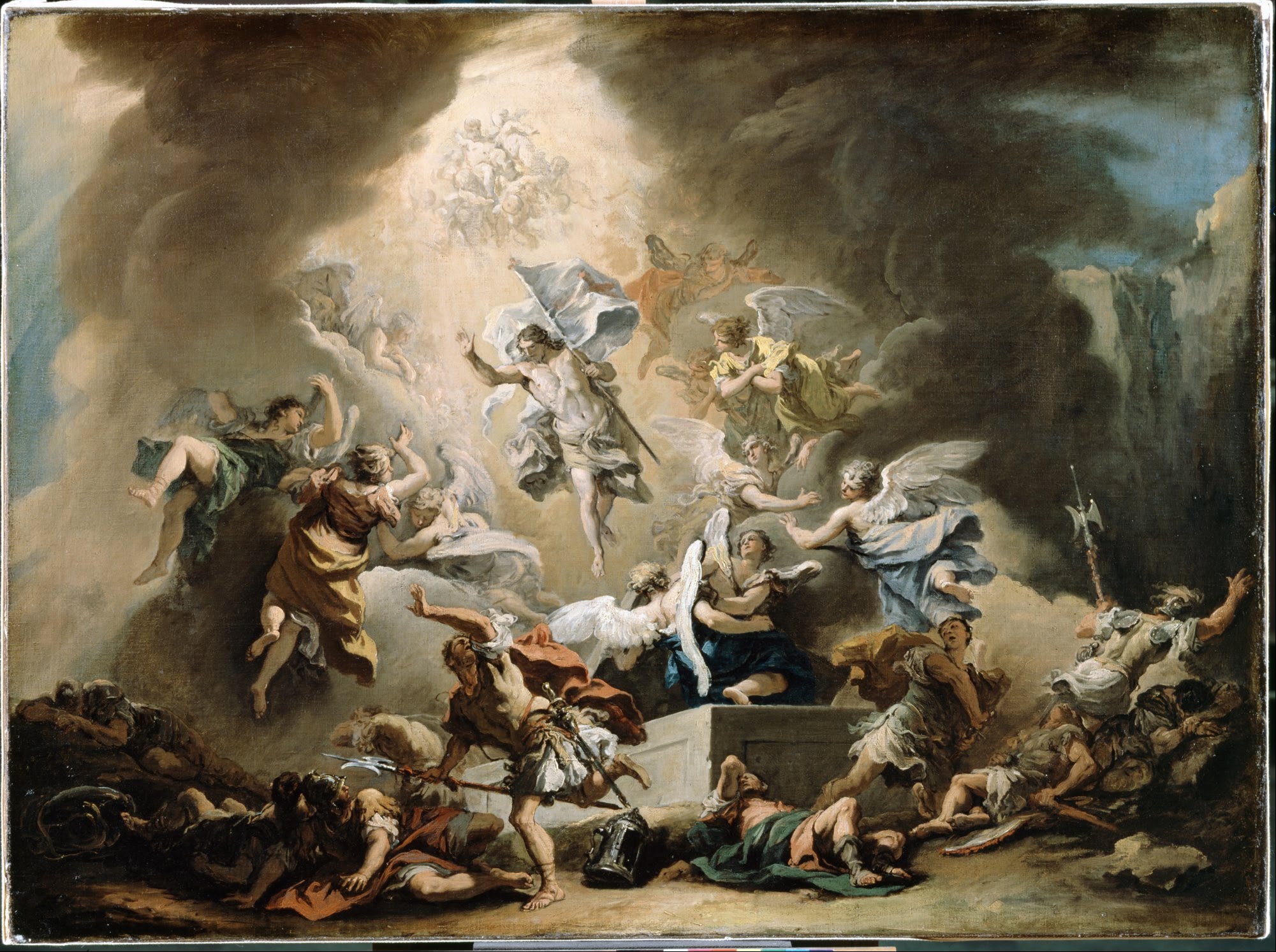Easter People on Mission: Week 2
Acts of the Apostles Scripture Challenge
Acts of the Apostles Scripture Challenge

Chapter 5 opens with the story of Ananias and Sapphira. Donations to the apostolic fund are voluntary. However, the couple misleads the apostles to think they had donated everything and give the false impression of being honest and generous. Peter accuses the couple of lying to the Holy Spirit, and both are struck dead because of their sin. The hypocrisy of the couple is dealt with swiftly and decisively and serves as a lesson for the rest of the Church.
The Church of Jerusalem is experiencing amazing growth. The apostles perform many signs and wonders among the people through the power of the Holy Spirit. Large crowds bring their sick for healing and all are cured. However, the rapid growth of the Church once again attracts intense opposition from the Sanhedrin. The apostles are jailed and charged with defiance of the Sanhedrin’s previous order to abandon their teaching. An angel of the Lord opens the door in the middle of the night and instructs them to preach in the temple area. When brought again before the Sanhedrin, the apostles stand firm in their convictions proclaiming that they must obey God rather than men. The Sanhedrin releases the apostles taking the advice of Gamaliel who wisely advises them that if this movement is in fact from God, they will not be able to overthrow it; if it is of men, it will fall apart on its own.
The rapid expansion of the Church hits a speed bump in Chapter 6. The widows of the Hellenists (Greek-speaking immigrants from Jewish settlements outside of Palestine) were not being provided for. The community gathered and proposed a solution: to ordain seven men of good repute to assist with the material needs of the community while the Twelve continue to address the spiritual needs of the community. Stephen, one of the Seven, is soon called upon to preach and defend the faith. He is falsely accused of blasphemy and is called to defend himself in front of the Sanhedrin.
Stephen’s defense is presented in Chapter 7, where he recounts the history of Israel from Genesis to the present, highlighting Israel’s stubborn rebellion against God and ending with a searing indictment of their failure to observe the law and their guilt in executing the Messiah. Infuriated, the leaders rush upon him and stone him. Stephen’s martyrdom is deliberately portrayed to parallel the passion of Jesus. Stephen’s death also prompts severe persecution of the Church in Jerusalem.
In Chapter 8, Saul (the future St. Paul) enters the scene. Saul consents to the death of Stephen and participates in the persecution, going house to house, and handing over men and women for imprisonment. The persecution in Jerusalem causes many believers to be scattered throughout Judea and Samaria. Chapter 8 highlights the preaching of Philip, who travels to Samaria to proclaim the Messiah. Philip performs many signs and wonders causing great joy in that city and is guided by the Spirit to evangelize and baptize an Ethiopian eunuch. Chapter 8 also highlights that the miraculous charisms of the Christian community are not to be confused with the magic of sorcerers. This is made clear in the interaction between Simon the Magician and Peter. Simon treats wonder-working power as something for which he can take credit, whereas the apostles attribute all wonders to Jesus. Peter rebukes Simon for his wickedness.
What are some things we can learn from these passages?
The story of Ananias and Sapphira illustrates that even believers can be led into bold, flagrant sin. It was Satan that had filled their hearts to lie in this way (Acts 5:3) and “to test the Spirit of the Lord” (Acts 5:9). Covetousness, hypocrisy, and a desire for the praise of men all played a part in their demise. This story brings out the truth that God does not shrug off sin, and neither should we; serious sin can have devastating consequences.
This passage also helps us to see how God can use bad things for a good purpose. The persecution of the Christians in Jerusalem caused them to disperse, but that dispersion caused the Church to grow as evidenced by Philip’s preaching in Samaria. Sometimes our lives don’t go as planned, but God can use these events and circumstances for good.
Stephen’s death, like that of Jesus, provides a model for us to put into practice Jesus’ command to forgive our enemies. This week, in imitation of St. Stephen, forgive and pray for someone who has wronged you.